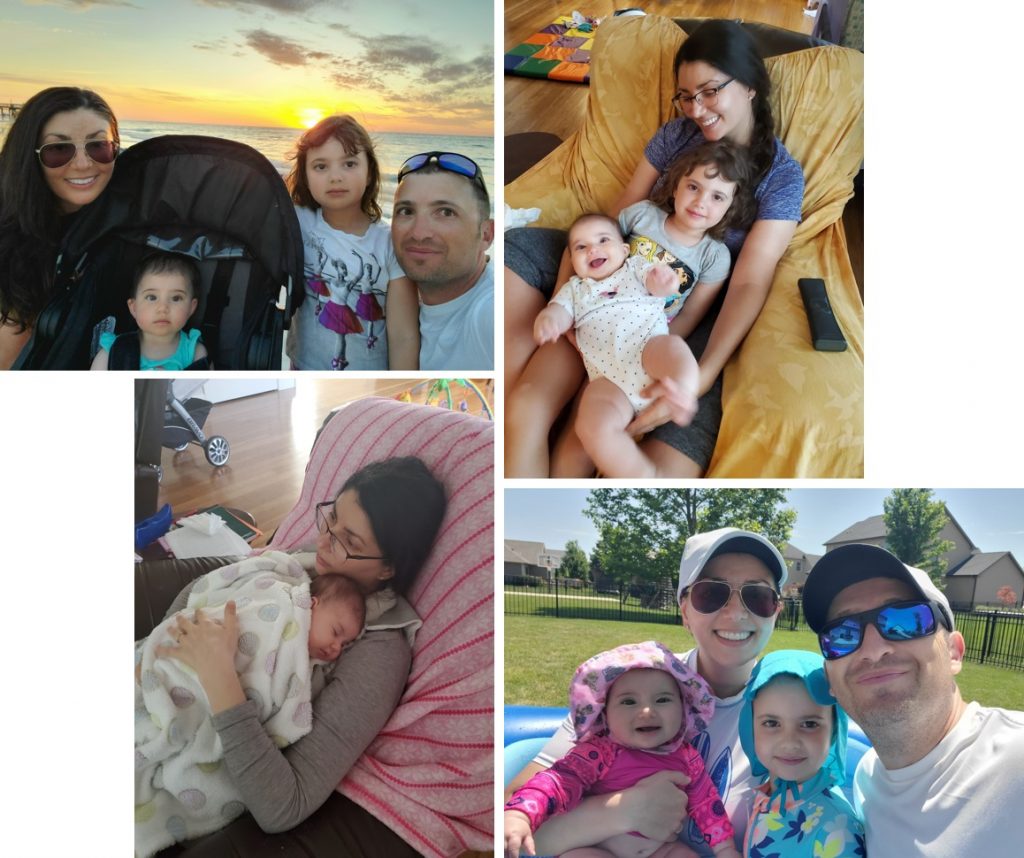125 Letter from Liza Berdychevsky

Dear future women tourism researchers,
I hope this letter finds you well and full of joy, inspiration, and passion for an academic career in the tourism field!
As a reflexive scholar, I have to disclose that writing a chapter about achieved contributions and a mentoring letter to future generations of women tourism scholars was not an intuitive task for me (even though it was a useful reflection exercise). Unlike some of the more seasoned contributors to this book, whose contributions and advice span an entire career worth, I am only approaching my mid-career phase. Hence, I still have a lot to learn and I feel more excited talking about my research plans rather than existing outcomes, even though the former build upon the latter. Nevertheless, I have figured that if this letter helps even one person, it is well worth it. Let me share with you the principles that guide my professional and personal life, and I hope that you will find at least some of them useful for your own journeys.
Balance and flexibility
Women are often told that we need to choose between family and a successful career. Historically, this was true, and if you believe that it still is, I genuinely respect your opinion and prerogatives (whichever choice you make) and invite you to disregard this paragraph. However, if, like me, you want it all, please do not let anyone tell you what (or when) you can or cannot have, not your colleagues, not your advisors, and not even your relatives. Also, please consider the possibility that there might never be a right time for having kids, but if you wait for too long, it might be too late. I had my first child two years before going up for tenure. Having moved three times across the globe for career and education, my husband and I have no close-by family to help with childcare, and the juggling was (and still is) hectic. I was under atomic pressure and stress about the potential effects of my maternity on my tenure prospects. My fears were exacerbated by several well-meaning colleagues asking why I could not have just waited until after tenure. Maybe I could, and maybe I could not. My second pregnancy was officially declared as geriatric, and both pregnancies were high-risk with a whole host of complications (probably avoidable had I been younger). Worrying about my career during that time surely cost me some grey hair and prevented me from fully enjoying maternity but, looking back, I would not change a thing. No matter what, your child(ren) will be more important to you than anything else. Only after having sailed through tenure have I understood the futility of that stress. Please do not put your life on hold because life and the biological clock do not wait for anyone. Yes, you will need to become more flexible. Yes, you will juggle frantically to balance between family and academic career. Yes, you might have to juggle in a different, and perhaps more intense, way than many of your men colleagues with children or colleagues of any gender without children. You will work nights, and I mean pulling serial all-nighters. You will work in the most bizarre situations and contexts (e.g., while breastfeeding or serving as a mattress for your sleeping children). You will have to navigate the stigma that mothers are less committed to their carrier, and you will work even harder to prove your commitment. But, trust me, it is all worth it, every second of it.

Productive and transformative risk taking
Sadly, even in choosing the research topic, conformity is often encouraged at the expense of creativity. People often crowd around safe, conventional topics and established methodologies. To an extent, we have to do it to secure our futures. Indeed, I had encountered substantial pushback when I decided to study sex in tourism. My choices of novel qualitative methodologies were not always well received either. However, staying away from the research topic (or methodology) that excites you because it seems risky, unconventional, or stigmatized will little-by-little gnaw at you from the inside. And then, one day, you might find out that somebody else has actually studied it, and their publication was well-received. I bet that would make anyone feel cheated; even if you jump on the wagon now, you are no longer a pioneer. So, take risks! Being different is cool! Not every risk taking is harmful. Your risk taking can be calculated and productive. Even more importantly, your risk taking can be creative and transformative. Carve out a niche for yourself so that when somebody thinks about a topic of inquiry, your name comes to mind. Work on the cutting edge and spearhead knowledge in your niche. Pave the way rather than tag along. As you carve out your niche, resist the pressure of being pigeonholed by the silo mentality. Yes, we need to specialize to become experts in what we do. However, many people misconstrue it as an invitation to never reach beyond their niche/field/discipline confines. I think it is a suboptimal, unfortunate approach. Conduct transdisciplinary research and read and publish across the relevant fields and disciplines. Consequently, your research will be much richer and more robust, and your network will be considerably wider.
Positive attitude — upwards and onwards
Throughout your academic journey, there will inevitably be multiple pitfalls and disappointments. Rejections are an integral, mundane part of the academic career (e.g., unfunded grant applications, rejected manuscripts). Do not let them get to you. Develop an elephant skin. The sooner, the better. Things will often deviate from your chosen course, and you will need to be nimble and not get defensive. Treat some pitfalls as sunk costs and others as a “tuition payment” for an unpleasant, albeit educational experience, but keep your attitude positive and keep trying. That is the key—to keep trying. Let me share with you my first publication experience as a graduate student. I probably remember it well because it was the first one. I have submitted a manuscript on women’s sexual behavior in tourism to a reputable journal in the tourism field. When reviewers’ feedback became available, the gist of it was that despite not having found any substantial flaws, the reviewers believed that manuscripts on sex do not belong in an academic journal. My heart sank, and I thought that I would never be able to publish this study. Luckily, my advisor urged me to submit the manuscript to an even higher-ranked journal in the tourism field, and about half a year later, it was published in that journal. So, please, do not let rejections discourage you. The credo is upwards and onwards. Also, surround yourself with supportive mentors and peers at any stage of your career who will help you see the bright side even in the darkest moment. I will always be grateful to Dr. Heather Gibson, Dr. Galit Nimrod, and Dr. Yaniv Poria, who were there for me through thick and thin at various career stages.
Integrity and trustworthiness
One of the seasoned faculty in my department often publicly warns the junior faculty not to be “shit magnets.” I have no quarrel with this—except that, taken to an extreme, such strategy can lead to burnouts and a sense of alienation. If you do not stand for something, you will fall for anything. I personally appreciate honesty and trustworthiness in people in general and in my collaborators in particular. I would rather work with people who are more honest than polite (at least, within the realistic constraints of academia), and I let this principle guide my comportment as well. Develop a reliable reputation—be a woman of your word. If people know that they can take your word to the bank, you will attract good collaborators of the same reliable nature. Whatever part of the research project you do, do it well. Do not take shortcuts. The rigor, quality, and caliber of your work will speak for themselves and will benefit you in the long term. Most of all, be kind, whether it is through constructive feedback to students and colleagues or being generous with your time and help. Give back to those who have helped you succeed, and give forward to those coming after you.
Passion and fun
You have to love what you do. Research is fun! You get the privilege of producing new knowledge. You have to enjoy the exploration and creation in the research process. If it is not fun and not rewarding to you (or it was, but it is not anymore), do not suffer, move on, make changes. Changes can mean a new research topic, a new research project, another team of collaborators, another department or institution, etc. Whatever it is, it has to ignite you! It is very hard to succeed in something that you are not passionate about. Passion helps you push through the all-night binge-writing when your entire household is snoring peacefully. And even if you do make it without passion, what is the point if you do not enjoy it? A famous saying, “Life is a journey, not a destination,” is true for your academic career as well.
To conclude, carve out your niche and work on the cutting edge. Take productive and transformative risks. Be bold yet flexible. Be confident but humble. Stay true to yourself and your passion. Do not pigeonhole yourself or confine to a silo. Never compromise on the rigor of your research. And good things will happen. Might it take longer? Probably. Will everyone support or agree? Of course not. Will it be worth it? Absolutely! So, have fun on this wonderful journey of exploration!
All the best,

Liza Berdychevsky
University of Illinois at Urbana-Champaign, United States

